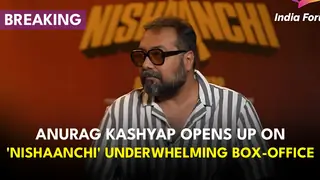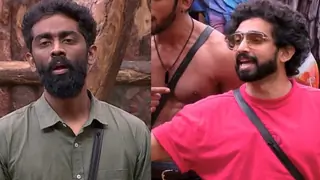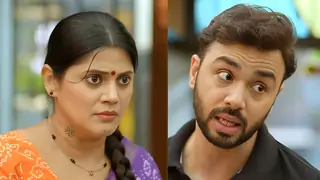The camp fire crackled and the occasional spark burst skyward. A great many young people sat circling the fire, their gaze riveted to the village shaman. Mbeki's long, black, weathered face would probably have been invisible against the darkness of night had it not been for yellow cast of the fire. The light of the new moon high in the African sky was unnoticeable unless one looked directly up. Even the background sounds of insects and animals in the African savannah were drowned out by the noise of the fire. The shaman with his thinning grey hair was holding his thick knobbly staff in his right hand poised to strike the stones hemming in the fire, prior to commencing his monthly ritual of storytelling. For the moment, to all the children of the village only the campfire and its immediate surrounding were real, all else unseen or forgotten. The staff struck once against a flagstone with a dull thud sending up a shower of sparks. The action was repeated. For a final and third time, the rod brought forth sparks, and the narration began in a slow deep voice that carried great age, wisdom and the history of the village and beyond.
"The Earth endures..." Once the words were spoken one or two of the youngest congregated around the campfire fidgeted while the remainder of the audience was transfixed. "Today I will speak to you all of the Age of Tears...a time when humankind paid dearly for its excesses and hubris...The Earth Mother wept a deluge of tears and countless of her children were drowned. Remember, at the beginning of the Age of Tears, people were more numerous than the stars visible in the night sky."
The younger ones in the group gasped that so many people could exist. One was brave enough to interrupt to ask, "Grand-Uncle, how could they gather enough fruits and berries, or hunt enough animals to feed so many?"
"Child, like the people to our north, they grew crops, kept herds of grazing animals, and food was brought from distant lands."
Apparently that was not answer enough for seven year old Afia. "But Grand-Uncle you said before that many lands were separated by vast stretches of water...How could they cross the distances before the food spoiled - or did they eat only dried food?" she wanted to know.
"No, Afia child, they ate fresh food, often out of season." When the shaman saw the puzzled look still on the girl's face, he smiled, took a deep breath and explained. "In those days just before the Age of Tears people flew in huge metal machines." The child along with a few of the other younger ones, gasped at the idea of human flight. "Not only that but people could speak to each other across vast distances as though they were standing next to each other."
Again there were gasps of astonishment. One child by the name of Adisa was excited too because she knew how this almost magical feat was achieved. She had seen with her own eyes how shiny smooth surfaces were used to reflect the sun's light great distances to communicate with outlying districts. "They had the heliograph even back in the old days, didn't they?"
She was crestfallen when the shaman replied "No, child, they had long before, left behind such simple devices, as they had drums, smoke or even runners to ferry messages to other places."
"Then how did they manage it, Grand-Uncle" Afia wanted to know.
"Those my child were the glory days of humankind - a time when nothing seemed impossible. Even the moon was within our reach." There were more wide eyes and gasps of amazement.
Afolabi, however, was annoyed by the digression from the main topic. "Grand-Uncle please tell us what caused the Age of Tears? Why if the family of man was so powerful do we today live the way we do? "
"Humankind poisoned the air and caused the Earth Mother to become sick. She developed a high fever and her body burned so hot that the weather changed dramatically. Crops that fed people could no longer be grown."
"How then did they survive?" asked Afia.
"Most did not - they died of starvation." There were gasps of shock and dismay among some of young people. "People fought over food and others migrated to areas that they thought would be more productive. However the weather was not only hotter but also more extreme in many localities. Some places had too much rain and others too little during the growing season. The great waters we call the seas and oceans rushed inland drowning large areas where the bulk of the population lived and grew their crops. Higher ground was only suitable for grazing sheep and goats. The survivors of the great floods also migrated in search of food just as the wildebeest migrate to fresher pastures. But the situation was dire everywhere. So the people fell upon each other in murderous battles driven by hunger and want. Nations fought and used terrifying weapons. The earth ran red with blood."
Mbeki paused for the horrific picture to sink in. Of course the situation was far more serious than he had said so far. With the breakdown of societal rules, and invaders from other lands battling over scarce food and with fresh water supplies compromised, diseases previously conquered or contained ravaged the population. The problem was exacerbated by dead bodies left to rot and contaminate the drinking water.
Aspects of the story still puzzled Afolabi who asked "Did the seas swell with all the additional rain, Grand-Uncle? I find it hard to believe that it could rain so much even if the monsoon was unusually heavy."
Mbeki had over the years, related the history many times and each time there was incredulity among his audience. "It is said that to the furthermost regions north and south on our world, lay mountains of ice. And the fierce heat of Earth Mother's fever melted the ice swelling the seas until they drowned the coastal areas of most lands."
"What is this ice, you say melted, Grand-Uncle?" Afia wanted to know. "I have never seen or heard of such a thing."
Mbeki gave a short grunt of a laugh. "I'm not surprised you have never seen such a thing. It is too hot for ice to form in our locality, but those of you who have visited the eastern region know that the distant mountains that are visible are white in appearance near their summits. The weather is so cold on the mountain tops that the rain that falls is cooled into a solid."
Afia laughed at the preposterous explanation and one or two of the other much younger children joined in with her. "Grand-Uncle I thought you were telling us an important story but it seems as if you are only trying to make us laugh!"
"No, child, I speak the truth. Just as you know that if you boil water for long enough it all disappears into steam, it is also the nature of water that when it cools enough to be almost painful to touch, it becomes solid as stone."
"So that is why that time is called the Age of Tears'," declared Afolabi who was several steps ahead in understanding compared to the others.
"Yes...The tears Earth Mother wept drowned much of the land. The food and water shortages coupled with rampant diseases felled the population of humans as easily as a man cuts down a sapling tree. It was a time of much suffering and death - a time of tears that heralded the decline of humankind until we existed only in small isolated groups across the face of the earth." The mood of the audience was sombre on hearing of such tragedy.
"But what of the knowledge and skills of our ancestors?" Afolabi interrupted the silence to ask. "Did people not safeguard that knowledge either in oral traditions like our own, or in written records like some communities?"
"The knowledge bearers were killed by the same forces that killed other people. As for written records, none survived the many decades of fire, storm and decay. Then of course there were countless years of barbarism that ensured all records were lost or destroyed."
"So the old knowledge could not re-seed the new civilisations that developed in due course," surmised Afolabi.
"We were reduced to the level of baboons!" All the children laughed, thinking their shaman was joking to lighten the sombre mood. When the laughter died away, Mbeki explained further. "All our knowledge was lost and our monuments and devices buried over time. In addition, societies had to contend with ignorance and suspicion about any new ideas and inventions even when they promised to make life easier for the people. What little we know today is what we have relearned for ourselves and passed on to our children. Even today, different peoples progress at differing speeds...The people to our south make and fashion metals, while other communities weave and dye cloth, and still others like us excel in the use of plants and herbs to treat illnesses. Without trade and exchanges of ideas we would be no cleverer than baboons."
"And that is why Great-Uncle, you wish us to memorise all that you teach, and in our own turn, teach our children that wisdom - so that the knowledge is not lost again."
"Yes, child...You are wise beyond your years," Mbeki concluded.
Afolabi smiled with pride at the compliment the shaman had paid her.
(The End)






















